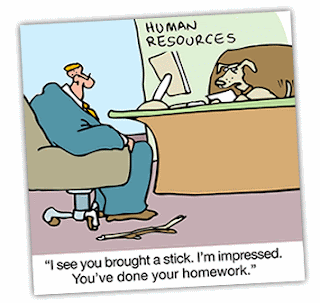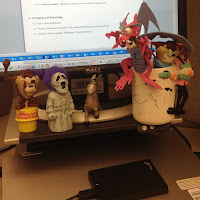I'm sorry I haven't kept up with the blog but I've been going gangbusters since mid-October. The most common word out of my mouth re: jobs though is "No. No thank you," so nothing more exciting than that one flurry which ended in September. That said, I've written a bunch of draft blog entries which I never finished. I swear. It's just because I got too busy.
So, I've had a lot of good intentions, just too many conferences, conventions, meetups, informational interviews, technical networking events, and Thanksgiving.
 The last week of October I spent in conventions. The best one was a virtual reality conference held in Bellevue. I didn't make it to any of the developer's talks because, well, I don't write software for applications or games, but I did play with all sorts of hardware. I also won a smart phone at another. The best part are the people I've met.
The last week of October I spent in conventions. The best one was a virtual reality conference held in Bellevue. I didn't make it to any of the developer's talks because, well, I don't write software for applications or games, but I did play with all sorts of hardware. I also won a smart phone at another. The best part are the people I've met. Networking has not turned out to be so horrible after all. I've been learning tons about how the outside world here really is more stodgy than I thought "we" were. What has been fun though, is that I've met theater people, young engineers from Boeing, people doing other things with technology - like fashion - which makes it so much fun. What is striking though, is how little innovation there is in the realm of game or app or web development. There's a lot of waste, which, I guess, if you have simple systems, is okay. You can throw money away...until you run out of it anyways. This is what just blows my mind.
And so, most of the "data" and analytics interest I've found out here in the wilds is related to marketing data and / or bioinformatics and healthcare. Minor amounts of network performance, or app performance and little of that is predictive. Most dashboards people come out with are monitors. There's little to no forecasting.
And the people I've reconnected with, they confirm what I've only just begun to realize in the past few months: that the work we did was ginormous. A couple of people I've been reconnecting with were let go at the C. acquisition. They've actually had some very interesting experience. Most importantly, they've acquired the skills to deal with uncertainty more than those of us who were "left behind" have. One guy talked about how he jumped through several companies after moving from HQ engineering into sales - and found he loved it. Another woman made her way through contracting work after the 2008 collapse and is now poised to be one of the next gen IT leaders in her organization. Still, I've met some new people and made some new friends who are teaching me more about how this outside world works. This learning has been interesting.
Here's what I've learned so far:
 1) Most companies work reactively and there is little understanding about proactive, or planned operational events such as load redistributions / rebalancing; planned growth (how they do this without examining the budget impacts kinda makes me nuts); reboots / restarts to clear memory leaks during off-peak hours; development of overload control processes or mechanisms;
1) Most companies work reactively and there is little understanding about proactive, or planned operational events such as load redistributions / rebalancing; planned growth (how they do this without examining the budget impacts kinda makes me nuts); reboots / restarts to clear memory leaks during off-peak hours; development of overload control processes or mechanisms;2) Performance management is NRT (see #1) and forecasting is maybe a week out? or based upon a 1.5 multiplier or something crazy. There's no analysis of congestion impacts.
3) No one seems to have budgetary responsibility, they just throw money at their networks. Which works, I guess, as long as you don't mind being unable to access the website, the network, or have lots of capital to dispose of.
4) Predictive analytics (see #2) and forecasting, are just beginning to become a "thing," as are GUIs for the NRT operational effects of load, or code changes.
5) There's little awareness of network efficiencies to be gained with compression techniques in coding. Everything is really big and sloppy "out" here. There are a few innovators, but they're struggling to be heard.
6) Everyone wants to be a "data scientist" as though that was a thing before. LOL There are now masters degrees being offered. I guess that's a blend of statistics and software, but without the subject matter expertise, you're just a statistician who can write programs, or a programmer who works a lot with statistics. Me, I'm keeping with the engineer in wireless core performance who can also code and applies statistical tools and machine learning algorithms to explore relationships. I also practice data visualization as performance art.
7) I turn down offers to interview with Microsoft, Amazon, or T-Mobile at least once a week, if not more. If you want big, the big guns are hiring now.
8) Yep, I'm a few years a head of the curve unless I want to go work with a big boy. Predictive performance analytics is just a glimmer in the eye of a very few companies. You can tell by the the Azure or AWS experience that neither Microsoft nor Amazon have that ingrained in their culture - yet. They might be trying to catch up with themselves, but we know how well that works out - and how long it takes to do.












































